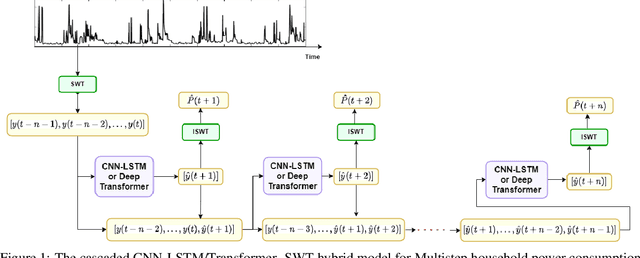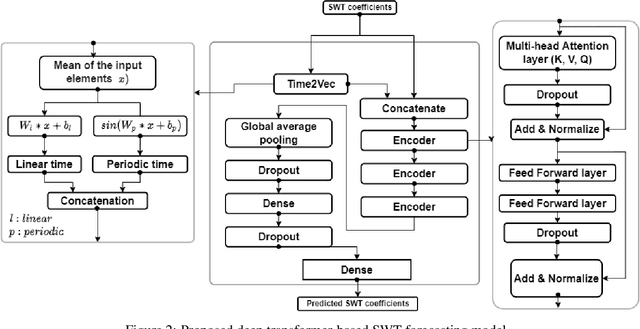Cascaded Deep Hybrid Models for Multistep Household Energy Consumption Forecasting
Paper and Code
Jul 06, 2022



Sustainability requires increased energy efficiency with minimal waste. The future power systems should thus provide high levels of flexibility iin controling energy consumption. Precise projections of future energy demand/load at the aggregate and on the individual site levels are of great importance for decision makers and professionals in the energy industry. Forecasting energy loads has become more advantageous for energy providers and customers, allowing them to establish an efficient production strategy to satisfy demand. This study introduces two hybrid cascaded models for forecasting multistep household power consumption in different resolutions. The first model integrates Stationary Wavelet Transform (SWT), as an efficient signal preprocessing technique, with Convolutional Neural Networks and Long Short Term Memory (LSTM). The second hybrid model combines SWT with a self-attention based neural network architecture named transformer. The major constraint of using time-frequency analysis methods such as SWT in multistep energy forecasting problems is that they require sequential signals, making signal reconstruction problematic in multistep forecasting applications.The cascaded models can efficiently address this problem through using the recursive outputs. Experimental results show that the proposed hybrid models achieve superior prediction performance compared to the existing multistep power consumption prediction methods. The results will pave the way for more accurate and reliable forecasting of household power consumption.
 Add to Chrome
Add to Chrome Add to Firefox
Add to Firefox Add to Edge
Add to Edge